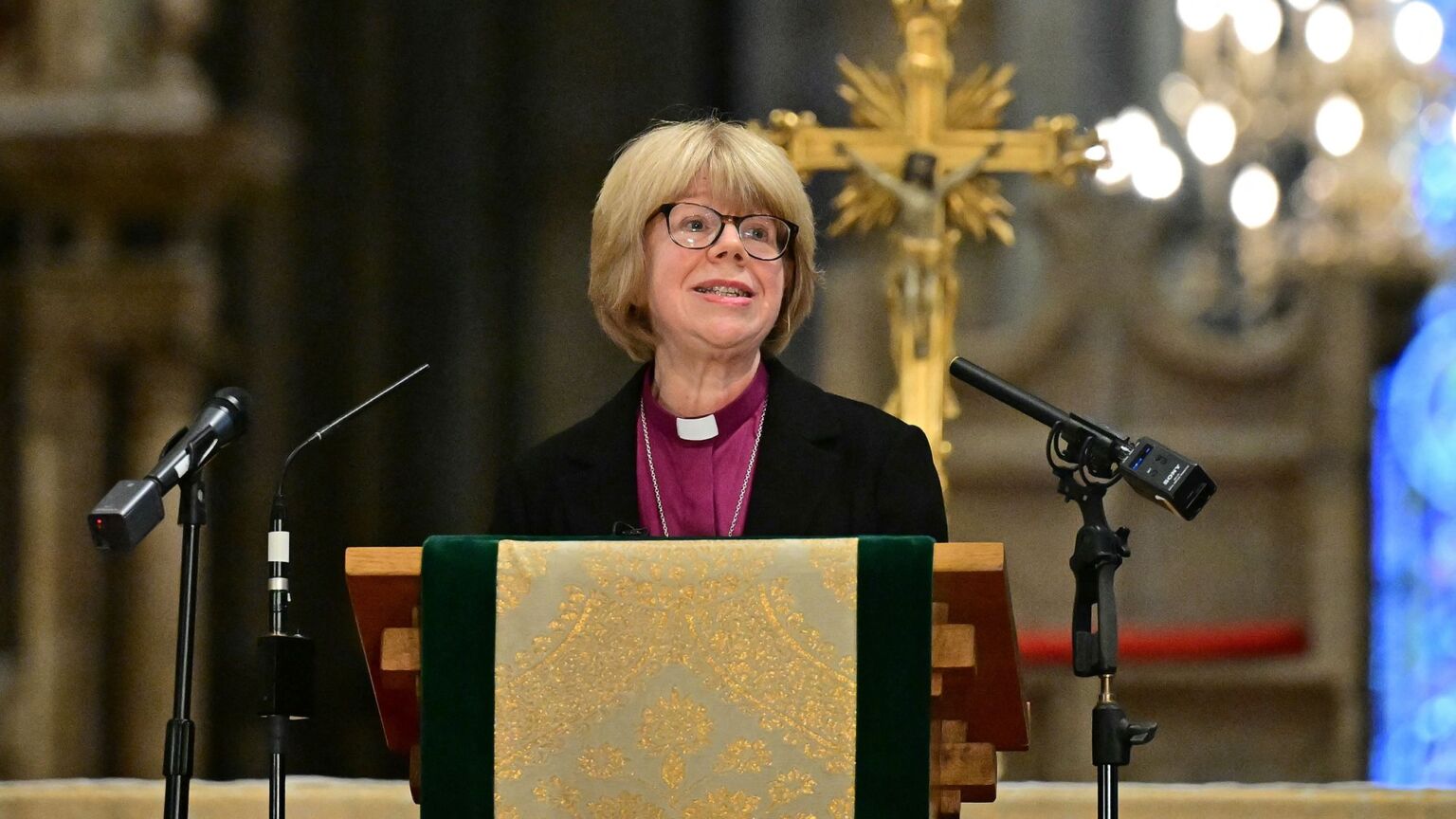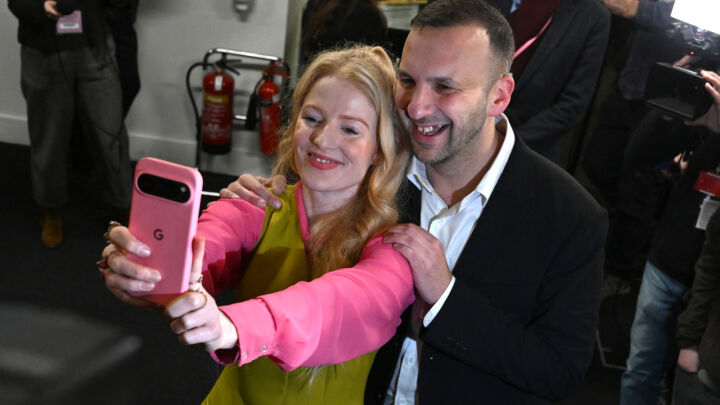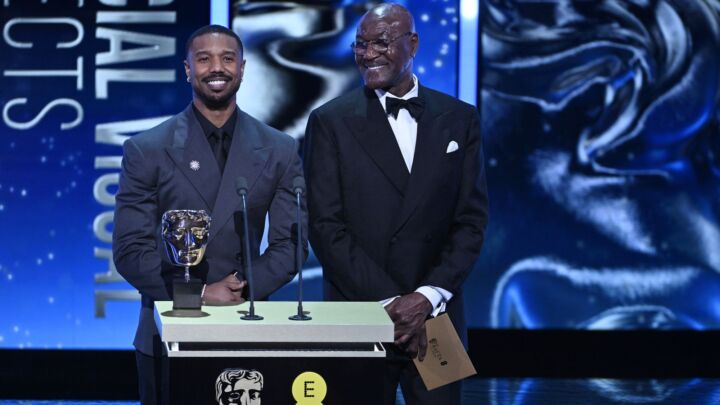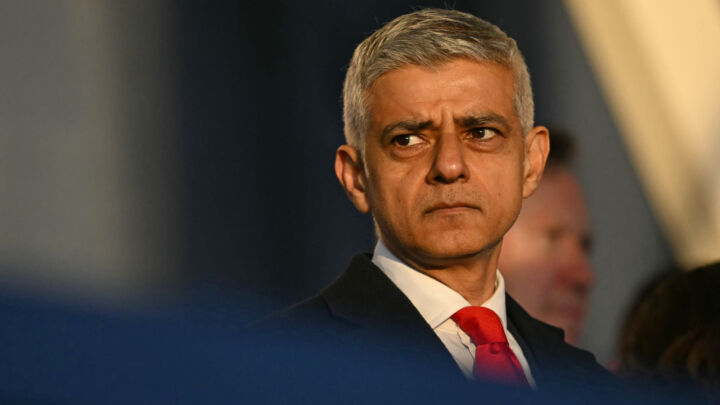Another Archbishop of Woke
The new Archbishop of Canterbury is as insufferably PC as her predecessors.

Want unlimited, ad-free access? Become a spiked supporter.
Prior to Friday, the Church of England was without a leader for nearly a year. In the not-so-distant past, this would have been as unimaginable as the UK being without a prime minister. And yet, in a sign of the church’s growing moral and cultural irrelevance, the long absence of an Archbishop of Canterbury elicited little public commentary or concern.
The news on Friday that Dame Sarah Mullally has been appointed as the new head of the church may have brought this period of uncertainty to an end. But it won’t reverse the church’s growing estrangement from its congregants.
Indeed, Mullally’s ascension to the head of the church is, if anything, confirmation that the Green Party at prayer is more determined than ever to alienate the world’s dwindling Anglican flock and drive itself further into obscurity.
Among Britain’s right-thinking classes, the reaction to her appointment has been one of celebration. She is the first female Archbishop of Canterbury, and therefore supposed proof that the church has moved with the times. The 63-year-old Mullally appears to firmly share this view, just as she shares much of the chronic wokeness that has eroded the church’s standing.
Much of the blame for the CofE’s problems can be laid at the feet of her predecessor, Justin Welby. He was forced to resign in November after an internal review – the Makin Report – found that it was likely he knew of, but said nothing about, the crimes of John Smyth. Smyth was an inveterate sadist who brutally abused hundreds of young boys at Christian camps, one of which he met Welby at in the 1970s.
It was under Welby that so much damage was done to the church Mullally now leads. Much of it was self-inflicted. The morose, weedy archbishop seemed to view his job as denigrating the CofE as often as possible. ‘It is now time to take action to address our shameful past’, Welby said in 2023. This dramatic statement was made in response to the ‘revelation’ that the church, in the 18th century, had invested in a company that transported slaves – the short-lived South Sea Company. Welby set up a £100million slavery reparations fund, which has since been increased to £1 billion. He even encouraged the desecration of his own churches: in 2021, he ordered parishes to hunt down any relics that could be linked to slavery or colonialism, declaring that ‘some [monuments] will have to come down’.
Welby was a full-throated supporter of the 2020 Black Lives Matter protests, in response to which he established a ‘race action plan’ to atone for his ‘deeply institutionally racist’ organisation. This plan insisted that a certain proportion of new clergy members had to be from an ethnic minority, while Jesus, Welby said, should be ‘re-imagined’ as black in CofE churches.
Welby couldn’t resist a fashionable cause. In 2020, to the surprise, by then, of no one, the church pledged to become Net Zero by 2030.
One of Welby’s favourite pastimes, when he wasn’t libelling his own church, was meddling in politics. In 2023, he described the Conservatives’ Illegal Migration Act as ‘isolationist’, ‘unprecedented’ and ‘morally unacceptable’. He described the Rwanda scheme as ‘ungodly’, and bleated about the ‘cruel’ Tories’ ‘harmful rhetoric’. Last year, he complained that the Conservatives’ new definition of extremism ‘disproportionately target[s] Muslim communities’.
This touches on another peculiar aspect of the CofE in recent times. Namely, that it appears to be far more interested in the wellbeing of British Muslims than British Christians. This trend admittedly predates Welby: in 2008, then Archbishop of Canterbury Rowan Williams said the imposition of Sharia law in Britain was ‘unavoidable’ and possibly a good thing for ‘social cohesion’. The church’s own head, the notoriously Islamophilic King Charles, said he would rather be the ‘defender of faith’ in general, rather than ‘defender of the faith’, the Anglican faith, as his official role has it. Islam can ‘teach us today a way of understanding and living in the world which Christianity is the poorer for having lost’, he said in his 1993 lecture ‘Islam and the West’. Sounding more like a Muslim cleric than the future head of one the world’s largest Christian traditions, Charles said that Islam can imbue Westerners with a ‘wider, deeper, more careful attitude to the world’.
Recently, there are signs that the church’s attitude to Christians has metastasised from indifference to animus. In a public letter, senior figures at the CofE said it was ‘deeply concerned’ by the Unite the Kingdom march, organised in London last month by Tommy Robinson. Referencing some marchers’ displays of faith and use of Christian symbols, including the cross, the church leaders claimed that ‘the co-opting or corrupting of the Christian faith to exclude others is unacceptable’. In opposition to what they called a ‘misuse of Christianity’, they urged people to ‘celebrate the rich diversity of our communities as we continue to work for a truly united nation of all faiths and races’. No doubt some among the 150,000-strong crowd were wrong’uns – the sort of BNP types who have long hung around Robinson – but the majority were everyday, patriotic people and many were Christian. The rally even began with the entire crowd reciting the Lord’s Prayer.
Alas, there is little evidence that Mullally will change the church’s trajectory. Unsurprisingly, given she’s been a senior figure of the church for some time, she seems to share in the identitarian posturing that has brought the CofE to its current low ebb. She laid out some of these views in 2017, when she gave her first speech as the Bishop of London. ‘If churches are going to be more relevant in our communities’, she said, ‘that means increasing churches that are led by women, who come from black, Asian and minority-ethnic groups’. She has been described as ‘managerialist and bureaucratic’, which makes her sound more like a member of Starmer’s cabinet than a spiritual leader.
We get a measure of Mullally from her response to Covid. Described as ‘leading’ the church’s handling of the pandemic, she welcomed every authoritarian measure imposed by the UK government, and even oversaw the shutting of churches to the public. After the pandemic, she unveiled a new sculpture at a church in Kilburn, entitled ‘Black Madonna and Child of Covid Lockdown’. This apparently was a ‘testament to the resolve of the congregation’s BAME (black, Asian and minority ethnic) women throughout the pandemic’.
Britain’s shrinking Christian congregation will find little comfort in the rise of Mullally to the CofE top job. The spirit of Welby lives on in her. Under the new Archbishop of Canterbury, English churches can get ready to host plenty more silent discos, mini-golf tournaments and evenings with celebrity drag queens. Anything that’s not Christian worship, then.
Hugo Timms is an editorial assistant at spiked.
You’ve hit your monthly free article limit.
Support spiked and get unlimited access.
Support spiked and get unlimited access
spiked is funded by readers like you. Only 0.1% of regular readers currently support us. If just 1% did, we could grow our team and step up the fight for free speech and democracy.
Become a spiked supporter and enjoy unlimited, ad-free access, bonus content and exclusive events – while helping to keep independent journalism alive.
Monthly support makes the biggest difference. Thank you.










Comments
Want to join the conversation?
Only spiked supporters and patrons, who donate regularly to us, can comment on our articles.